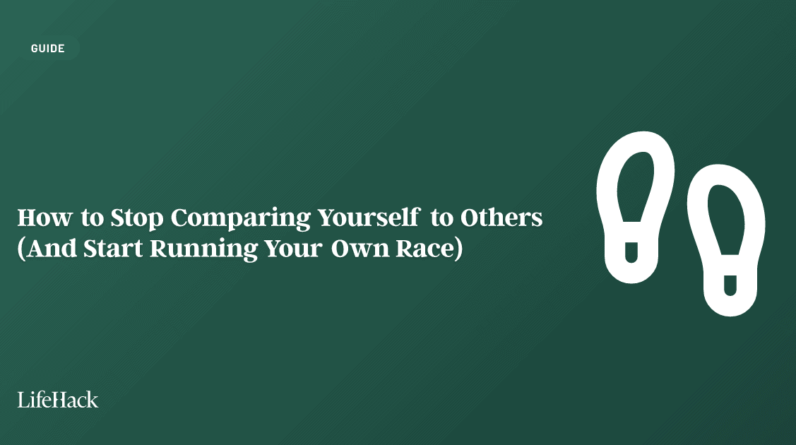
Ever get a bit too stuck in your own head? You think you’re right, even though everyone might be telling you you’re wrong.
This might come down to a self-awareness issue.
Lacking self-awareness means you might struggle to look at a situation and your actions objectively. Inevitably, this can lead to a lot of conflict in your work and personal life.
- So, how can you gain greater self-awareness?
- And why should you, exactly?
Below, we dig into all the nitty gritty details.
What is Self-Awareness, and Why is it Important?
Basic self-awareness starts at an early age.
Yet, a more complex level of self-awareness begins around 12-18 months of age and develops as time goes on. This was noted by researchers who studied children around this age of development.
These researchers placed a red dot on the child’s nose and sat them in front of a mirror. If the child touched their own nose rather than the mirror, researchers saw this as a positive sign that they were more self-aware.
So, what is self-awareness exactly?
Self-awareness is usually understood in two forms; public self-awareness and private self-awareness.
- Your private (or internal) self-awareness is how aware you are of your values, actions, and aspirations and how this impacts others.
- Your public (or external) self-awareness, in contrast, comes from understanding how others perceive and view you.
With private self-awareness, you react less and instead approach your feelings with curiosity. For instance, when you feel angry or sad, you might get curious about why and try to understand what is going on instead of acting on them.
Meanwhile, public self-awareness opens you up to better understand your interactions with others and how you can treat others in respectful and courteous ways. In many instances, this involves societal and social norms, which are generally accepted by most.
And this brings us to… why does it matter in the first place?
Self-awareness has many benefits, including:
- Allowing you to control your life outcomes better.
- Providing you with essentials to build happy and thriving relationships.
- Freeing you from biases or assumptions that hold you back.
- Offering a way to regulate your emotions and reactions.
- Decreasing stress and anxiety.
It’s no secret why the concept of “self-awareness” has become a hot topic as of late. Its’ importance for living a happy and fulfilling life isn’t to be ignored.
What Causes a Lack of Self-Awareness?
Lacking self-awareness happens due to various reasons, including:
- Fear of change
- Fear of being wrong or not wanting to be wrong
- Being afraid of the truth (which could also relate to fear of being wrong)
- Fear of sharing their feelings or being vulnerable with others
These fears can be deep-rooted from childhood or a traumatic event. Additionally, they may arise from general beliefs or societal norms. Yet, it doesn’t mean you can’t break through them!
What are the 5 Components of Self-Awareness?
Self-awareness is very closely linked with emotional intelligence.
To gain increased emotional intelligence, you need greater awareness. And this all comes down to 5 key components.
1. Self-Concept
This means exactly as it states; Self-concept is your own perception of yourself.
These derive from your own experiences, your beliefs about yourself, and what you want in life.
2. Thoughts
If you’ve ever studied (or used!) CBT, cognitive behavioral therapy, concepts, you’ll know that your thoughts impact your feelings.
Thus, taking the time to get to know your thoughts, why you’re having certain thoughts, and how you can change them can help in leaps and bounds when it comes to awareness.
3. Feelings
Feelings are linked to thoughts.
When you feel a certain way, it’s worth exploring the thoughts around it. At the end of the day, feelings are real, but they don’t always reflect the truth of the situation as a whole.
4. Body
This refers to physical sensations associated with feelings and reactions.
It takes increased self-awareness to note that your heart is racing, and you’re sweating. It takes even greater awareness to link this to anxious feelings and why you’re feeling those anxious feelings.
5. Emotions
Knowing your emotional state before entering a situation makes you more aware of your own reactions and feelings (and can help you from acting on any that might not be appropriate!).
Related Article: Newsflash! Being Vulnerable is One of Your Greatest Strengths
How Do You Develop Self-Awareness?
So, you’ve decided you want to improve your self-awareness!
But how do you do that? Like anything, it will take some practice. Yet, with time, you can definitely improve yours, which will lead to greater happiness and better relationships in your life.
With that in mind, here are a few tips:
- Track your thoughts and feelings.
- Practice CBT (There are many phone apps that can help you do this! Alternatively, many therapists specialize in this practice and can help you apply it to your life.).
- Get curious about your feelings.
- Ask a friend or coworker for honest feedback (and don’t get mad!).
- Meditate.
- Write down your goals, priorities, and values in life.
- Take self-awareness tests.
- Challenge your thoughts. When you’re thinking about yourself negatively, try to re-frame it with a positive thought.
Related Article: How to Gain Back Control with CBT: The Incredible Power of Your Thoughts
Gain Greater Self-Awareness & Watch Your Whole Life Improve!
Self-awareness improves your relationship with yourself and others.
What’s not to love? It can further help you figure out where you want to be in life and make that ultra-clear.
And don’t be afraid to crash through your previous beliefs.
As award-winning author Vironika Tugaleva once said,
“To know yourself, you must sacrifice the illusion that you already do.”
Generally speaking, when you’re more aware of yourself and your emotions, you’ll feel less lost and more self-assured. You’ll know how to act accordingly in specific situations and even be able to control the outcome positively.
If that isn’t a superpower, we don’t know what is!
Read Next: 5 Beneficial Tips to Letting Go of Your Old Self & Allowing Growth
Editor’s note: This article was originally published Jan 19, 2024 and has been updated to improve reader experience.
Photo by Antoni Shkraba







